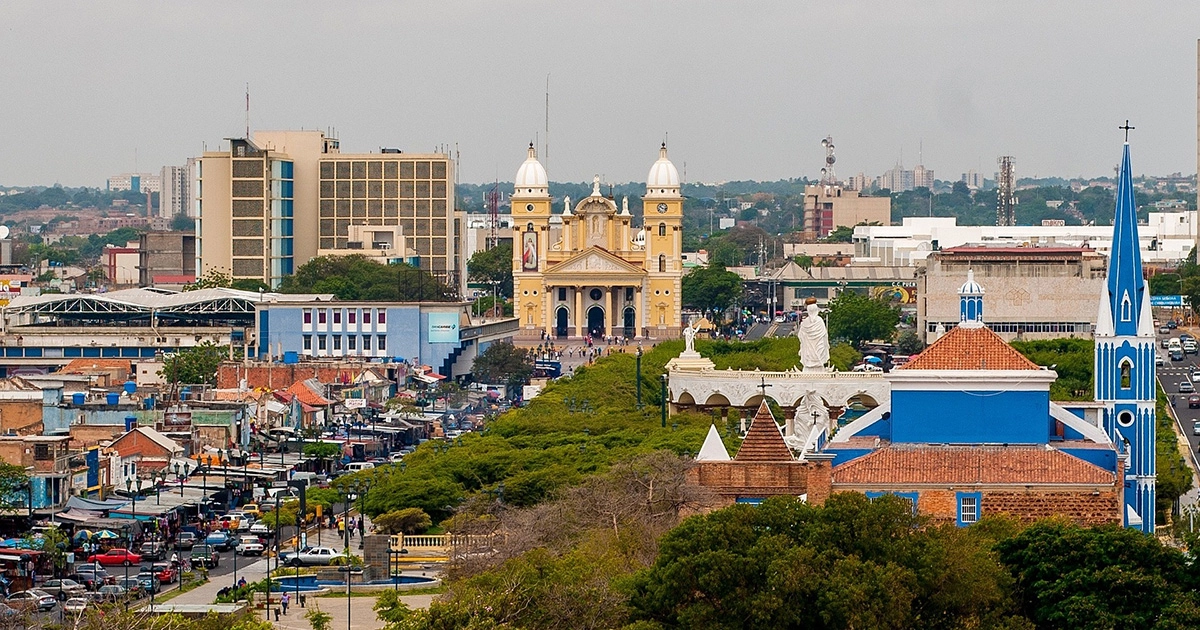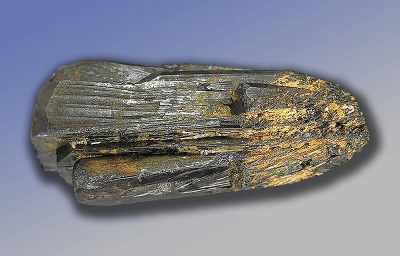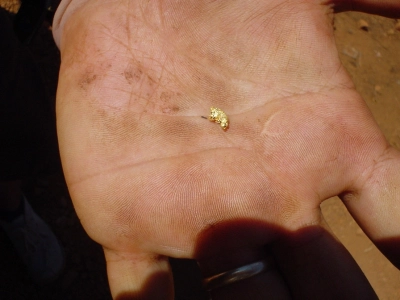Venezuela
This is a country on the northern coast of South America, one of the most beautiful and richest countries in the world with unique natural resources, known for the incredible beauty of its nature. There are many picturesque islands off the coast of the Caribbean Sea, including Margarita Island and the Los Roques archipelago, and in the northwestern part of the country the gigantic Andes rise, there is the largest Lake Maracaibo in Latin America and the majestic Angel Falls.
The Bolivarian Republic of Venezuela is the official name of the country. The state covers an area of 916,445 km² (32nd in the world). The population of the country is approximately 33,449,000 people (as of 2022).
The national composition of Venezuela is represented by:
- mestizos (67%);
- Europeans: Italians, Germans, Portuguese, Spaniards (21%);
- people of the Negroid race (10%);
- Indians (2%).
The aggravation of the economic crisis in 2016-2018 led to a sharp increase in emigration. Due to its magnitude, the migration crisis in Venezuela is considered the largest in the history of South America.
Since almost all the country's cities are located around Lake Maracaibo, the densely populated areas are those located on a narrow coastal strip, and the least populated southern regions of the country, which stretch from the Orinoco and Apure rivers to the Colombian and Brazilian borders.
The majority of the Venezuelan population consider themselves to be Roman Catholic (up to 96%), within which the local population has a cult of Maria Lions, which is not recognized by the Catholic Church. There are also about 2% of Protestants and representatives of other faiths in the country.
The official language is Spanish (English is the second compulsory language in higher education institutions). Indians speak approximately 40 languages of different groups.
The country's currency is the bolivar.
The capital of Venezuela is the city of Caracas. It is the service, banking and commercial center of the country: the Stock Exchange of Caracas and PDVSA (the country's largest company) are headquartered in the city. Caracas is also considered one of the most important economic and cultural centers of Latin America.
The most economically developed cities are also Maracaibo (there is the largest oil refining center in Venezuela, an oil loading port, the production of building materials, textiles and food products) and Valencia (a large industrial center: mechanical engineering, chemical, pharmaceutical, food industries).
Venezuela is administratively divided into 23 states (estados); 1 Federal District — the area of the capital of Caracas; Federal possessions — islands in the Caribbean. The states of Venezuela are grouped into 9 regions, established by presidential decree.
Since the Paleolithic, Indian tribes have lived in the country, engaged in agriculture and fishing.
For Europeans, Venezuela was discovered by Columbus in 1498, and in 1499, for a more detailed study of these lands, an expedition led by Alonso de Ojeda was sent there with the task of not only inspecting the area, but also, if possible, determining whether there is gold on the peninsula. The settlement they saw, located on Maracaibo, reminded one of the participants in the campaign of his native Italy. The similarity was that the Indians, having built their huts on wooden piles, connected all the buildings with gangways. According to one version, it was this feature that caused the Italian to call the bay little Venice, pronounced in Spanish as Venezuela. Initially, Venezuela was called the city founded by the Spaniards at the beginning of the bay, but then they began to call the whole country like that.
Until the beginning of the 19th century, the power here was in the hands of the Spaniards, except for a short period between 1528 and 1556, when they sold the right to colonize the land to the Germans, and then canceled the deal.
Venezuela gained its independence on July 5, 1811, as a result of a struggle led by national hero Simón Bolivar. For another twenty years, liberation wars took place in the country, the borders of the state changed, the power of the Spaniards temporarily returned, but by 1830 Venezuela finally separated from Great Colombia and became completely independent.
During the dictatorship of Juan Gomez (1909-1935), relative order was established in the country. Noticeable economic growth thanks to oil production made Venezuela an independent country that paid off its creditors.
Oil production has become the main industry for Venezuela. In the 60s of the last century, Venezuela became a member of the countries that created the Organization that controls prices for oil production and export.
Hugo Chavez, who won the presidential election in 1998, first of all set out to change the constitution, making it similar to the one that was created at the very beginning by President Bolivar. Practically most of the constitution was devoted to human rights, it was recognized for the first time that 300,000 indigenous people of the country — the Indians — have rights to the lands of their traditional residence and can participate in the design of their borders. On April 11, 2002, an attempted coup d'etat took place in the country, however, having received massive support from the population and in the army, Hugo Chavez retained his post.
Nicolas Maduro became the next president of Venezuela. In January 2019, the protracted political crisis escalated sharply. With the support of the United States, there was an unsuccessful attempt at another coup.
Venezuela is a state in the north of the South American continent. It is washed by the Caribbean Sea and the Atlantic Ocean in the north, borders with Guyana in the east, Brazil in the south and Colombia in the west. In the northwestern part of the territory there are two branches of the northern tip of the Andes mountain range, between them is the lowland of Maracaibo; in the center of the country, the Llanos-Orinoco plains; in the southeast lies the Guiana Plateau. The highest point is Peak Bolivar 4978 meters. Angel Falls — the highest in the world, is located in the tropical forests of the Venezuelan state of Bolivar, on the territory of the Canaima National Park (included in the UNESCO World Heritage List). Venezuela also owns 40 large islands, more than 70 small ones and almost two hundred reefs. There are about 105 protected areas in the state, which cover about 26% of the country's continental, marine and insular surface.
The culture of Venezuela has Spanish and Indian roots, in addition, since the middle of the 20th century, some influence of the United States has been affecting. Venezuela was one of the poorest Spanish colonies, so there are few outstanding monuments of colonial architecture. A few examples of buildings from this period can be found in the capital, as well as in the old cities of Merida and Valencia.
The indigenous inhabitants of the territory where Venezuela is currently located are the Mapoyo Indians. The Mapoyo did not have a written language, and for centuries their culture and customs were passed down from generation to generation through oral tradition. The unwritten dialect was the origin of the original tradition of Venezuela. Its keepers tell old legends and stories of daily activities to young people, thus preserving the cultural heritage of their tribe and helping to strengthen self-awareness. UNESCO has listed the oral tradition of Venezuela and the Mapoyo tribe as a World Intangible Heritage.
Venezuelans are highly tolerant of racial and cultural differences. The country attaches great importance to family values. Venezuelans do not welcome the familiarity that is common in Latin American countries. Their communication is distinguished by politeness and correctness.
The locals have a special attitude towards time, it is not customary to rush here, but in business matters, the Venezuelans are punctual, accurate and not inclined to delay the solution of problems.
The form of government in Venezuela is a presidential republic. The president is the head of state and government, he can be re-elected an unlimited number of times. The President appoints the Vice President, decides on the structure and composition of the government, and appoints its members with the consent of Parliament.
The president has the right of legislative initiative and can propose changes to existing legislation, but his proposals can be rejected by a simple parliamentary majority.
The unicameral parliament — the National Assembly of Venezuela — consists of 165 deputies.
Venezuela has vast resources of oil, gas, iron ore, coal, gold, bauxite and other minerals. The oil production and oil refining industry plays a decisive role in the country. Venezuela ranks first in the world in terms of proven oil reserves (297 billion barrels). The oil industry belongs to the state. The rupture of relations with American companies threatened Venezuela's access to technologies for its extraction and processing. Oil revenues account for about 90% of the country's export earnings.
Venezuela also exports aluminum, iron ore, chemical products, coffee, cocoa, seafood, exotic fruits, rum. Imports into the country include cars, equipment, spare parts, food, medicines.
Recently, the country is experiencing an acute financial and economic crisis. Also, the Venezuelan authorities acknowledge that US sanctions, combined with the consequences of the pandemic, hit the unemployment rate in the country. At the same time, the measures taken by the Venezuelan government following the results of 2021 led to an improvement in macroeconomic indicators. For the first time in the last eight years, GDP growth was recorded — about 5%. Analysts predicted that in 2022 the country's GDP will grow by another 8%. Inflation decreased four times (compared to 2020) and amounted to 686.4%.
Inflation in Venezuela continued to decline in 2022, with monthly price growth slowing to 2.9% in February (from 6.7% in January), the lowest level in eight years. According to some estimates, Venezuela's exports increased by 78.3% (mainly due to oil). The main goals for the Venezuelan economy for 2022 were to increase the production of oil, oil products, petrochemicals and gas, as well as the activation / restoration of national production enterprises in order to import substitution and diversify the economy, attract foreign investment, double the number of free CLAP food rations, etc.
Agricultural land occupies 24.5% of the area of Venezuela, including arable land occupies 3.1%, permanent crops are grown on 0.8% of the territory, pastures occupy 20.6%. Irrigation is carried out on 10.55 thousand km². Main crops: corn, sorghum, sugar cane, rice, bananas, vegetables, coffee.
Since 1939, after the introduction of low food prices, and to this day, agriculture in the country remains economically unprofitable.
On November 5, 2018, the Bank of England refused to return to Venezuela the country's gold reserves stored in the bank (14 tons of gold bars worth 420 million pounds).
In December 2022, Russia and Venezuela signed an agreement on the deployment of a GLONASS measuring station on the territory of the South American country. The construction of the satellite system facility will be carried out by a subsidiary of Roskosmos. The government delegations of the two countries also signed agreements on cooperation in the field of maritime transport, information technology, healthcare and customs regulation. Shvabe Holding of Rostec State Corporation and the Russian-Venezuelan Chamber of Commerce have signed a cooperation agreement.
The target industries and technological areas of cooperation will be projects in the field of medicine, special vehicles, optics and optical materials, "smart city", lighting engineering, as well as water treatment and improving the comfort of the urban environment.
On the basis of the Russian-Venezuelan bank JSCB Evrofinance Mosnarbank, Rostec State Corporation will create a line of digital financial instruments for organizing cross-border settlements. The implementation of the project will make it possible to carry out mutual settlements in the course of trade and economic cooperation between Russia and Venezuela, as well as with other interested parties.
Venezuela is a major market in the Latin American region. For many entrepreneurs, registering a business in Venezuela will be an attractive solution, since the country provides unlimited opportunities for doing business.
In order to open a company in Venezuela, you need to apply to:
- State Register of Companies in Venezuela.
- Management of foreign investments.
- National Tax Service and Customs Service to obtain the TIN code.
Under Venezuelan law, a foreign company can be named when non-resident entrepreneurs own more than 49% of the shares of the company. If a foreign citizen owns less than 20% of the shares, then the company will be considered an ordinary Venezuelan local company. You can register an enterprise in Venezuela in the following forms of doing business:
- Limited Liability Company (LLC).
- Public Limited Company (PLC).
- Branch of the company (branch).
- Representation of a foreign company (representative company).
Each of these business forms has unique advantages, as well as different approved activities, registration conditions and minimum capital requirements.
In order to open a business in Venezuela, the organization must have 1 director and 1 shareholder. The authorized capital of a registered limited liability company is $400. An entrepreneur can be both a founder and a shareholder. A foreign citizen can fully own an LLC company in Venezuela. The presence of corporate shareholders is also allowed. Foreign ownership is allowed, up to 100% LLC ownership. Directors are entered in a public register. There is a requirement to hold annual meetings of shareholders.
But this business structure is not considered the most common in the jurisdiction, often foreign entrepreneurs prefer to register an open public company with limited liability. The authorized capital in order to register a company in Venezuela PLC is not required.
A foreign company can register its branch in Venezuela.
The potential of natural resources, and not only minerals, but also human and commercial resources of Venezuela provides a lot of opportunities for investment in this country.
The city of Caracas is the preferred choice for most commercial and professional businesses due to its strategic location, access to major financial services companies and government agencies. Caracas is also the preferred location for the headquarters of most industrial, energy and mining sectors.
The cities of Valencia and Maracay are the preferred choice for industrial and agricultural enterprises due to the wide access to raw materials, ideal weather conditions and transport.
Maracaibo and Puerto la Cruz are preferred centers for energy (oil and gas) related businesses.
Similarly, Puerto Ordaz is located in the heart of the mining sector.
On July 4, 2008, the Autonomous Notary and Registration Service (SAREM) of the Ministry of Internal Affairs and Justice established mandatory requirements for foreigners wishing to visit the country for purposes other than recreational or entertainment: to apply for a business visa (TR-N), an investor visa ( TR-I) and industrial entrepreneur visa respectively.
Currently, there is no single rule applicable in cases where foreign investors (individuals and / or legal entities) wish to acquire or dispose of real estate, since many of the registrars and notaries, using their qualifying function, may require the provision of optional (optional) documents and in the worst case, refuse registration.
The Bolivarian Republic of Venezuela terminated the agreement with the International Center for the Settlement of Investment Disputes (ICSID), remaining, however, under the influence of the so-called. "additional mechanism" obliging to resolve disputes through this organization if the other party is a member of it.
Venezuela is among the top five countries under US sanctions. More than four hundred sanctions have been imposed against it. More than $7 billion worth of Venezuelan assets abroad have been frozen. Venezuela's oil tankers and other vessels, as well as the national airline, have been sanctioned, currently Venezuela does not have access to SWIFT, the commercialization of Venezuelan oil and gold is prohibited, and the country cannot renegotiate or restructure its debt.
On October 12, 2020, the National Constitutional Assembly approved the Anti-Blockade Constitutional Law for National Development and the Guarantee of Human Rights proposed by President Maduro. This law will remain in effect as long as the blockade or its consequences persist.
Constitutional laws stand above all other regulations in the Venezuelan legal system, making the Anti-Blockade Law a powerful legal instrument. In fact, it is aimed at protecting the sovereignty of Venezuela, its resources and the rights of the Venezuelan people, promoting productive investment in strategic sectors and attracting new commercial and industrial actors to them.
The Anti-Blockade Law established the International Productive Investment Center, which manages project portfolios and contributions from potential allies, evaluates the feasibility and effectiveness of projects, accompanies their implementation, and provides recommendations to the president, the State Council and the country. This provides Venezuela with a dynamic legal framework that allows the national government to take immediate action to compensate for the risks and damage caused by unilateral coercive measures.
Dividends and revenues received by the state from projects implemented under the Anti-Blockade Law are intended to protect the Venezuelan model of social inclusion.
This law also contains confidentiality provisions aimed at protecting investors. Venezuela also undertakes to provide legal support to partners who may be threatened by coercive measures.
The anti-blockade law plays a key role in Venezuela's path to recovery. Smart and creative policies, through programs designed to protect growth and social investment without compromising sovereignty, are testament to the resilience of the Venezuelan people and their government in resisting arbitrary and illegal coercive measures.


31,194,108 ¥

2,768,735 ¥









